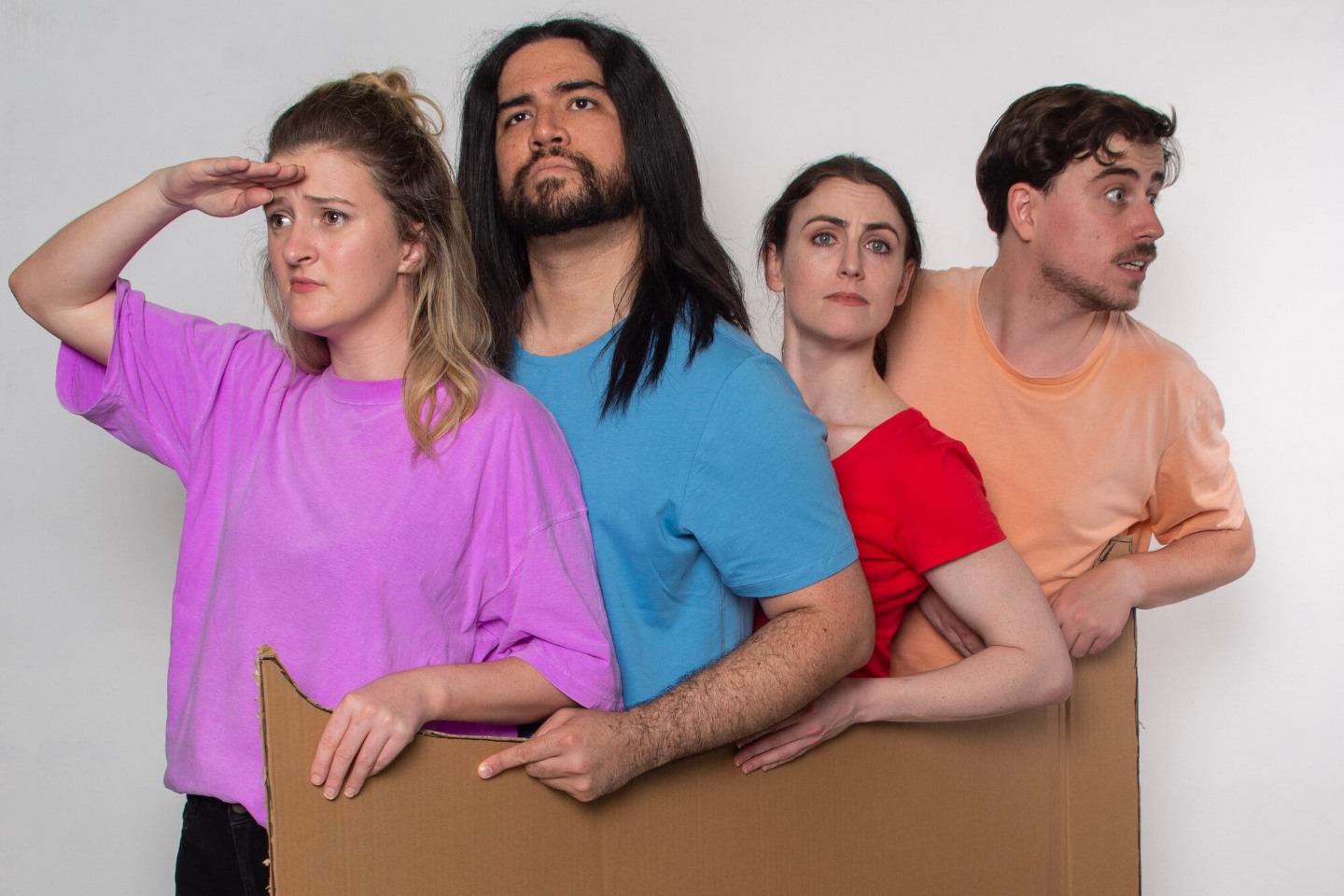
Homer’s Athens was bedevilled by the plague, making it the perfect inspiration for a modern remake of the classic yarn. In episode two of the epic, Odysseus tries to get home from Troy, and David Zampatti goes along for the ride.
Last year’s Troy Story was one of those sneaky little surprises that makes getting out and about at Fringe World worthwhile.
The small but high-octane troupe of Thomas Dimmick, Hock Edwards, Grace Edwards and Erin Craddock has an appealing grasp of pantomime and a suitably disrespectful feel for Homer’s great yarn, making for a rollicking take on the war between the Greeks and the Trojans, immortalised in The Iliad.
Homer was no fool, and when big box-office drachma starting rolling in for The Iliad, he/she/they/someone completely different got stuck into a sequel, the tale of Odysseus (played here by Hock Edwards), the cunning king of Ithaca, he of the great big hollow wooden horse, and his decade-long trip home from the war to his loyal wife Penelope and son Telemachus.
It was only natural, then, that Dimmick, the Edwardses and Craddock should have a crack at it for this year’s Fringe World.
I’d like to say the story of The Odyssey is so familiar to modern audiences that it hardly needs retelling here, but, sadly, I suspect that’s not the case.
It’s far too complicated and episodic even to attempt to précis here, so let’s just say it’s the one with the Cyclops and the Sirens, the nymph Calypso (Grace Edwards) and the witch Circe (Dimmick), Poseidon and his typhoons, Zeus (Craddock) and his thunderbolts. There are useful sheep and magic, and forbidden but delicious-looking cattle.
Nearly everyone who isn’t immortal dies and some of them get eaten – no wonder it’s been popular for coming on 3000 years.
Truth is, The Odyssey isn’t as tight or universal a story as The Iliad, and this production suffers in comparison with Troy Story because of its somewhat weaker material and less vivid characters. But all the energy of the cast and the precision of its staging are still there.
The spectacular set (well, actually it’s a cardboard box chopped up into the shapes of boats, lightning bolts, swords and goblets) and skintight sound effects add pace and great humour to proceedings.
One thing: the Greeks invented democracy, so a quick show of hands from the audience to determine whether they wanted the incredibly noisy air-conditioner on during the show would have been appropriate.
All in all, like its predecessor, this Odyssey is intelligent, pacy and even more fun than being eaten alive in a cave by a one-eyed monster.








